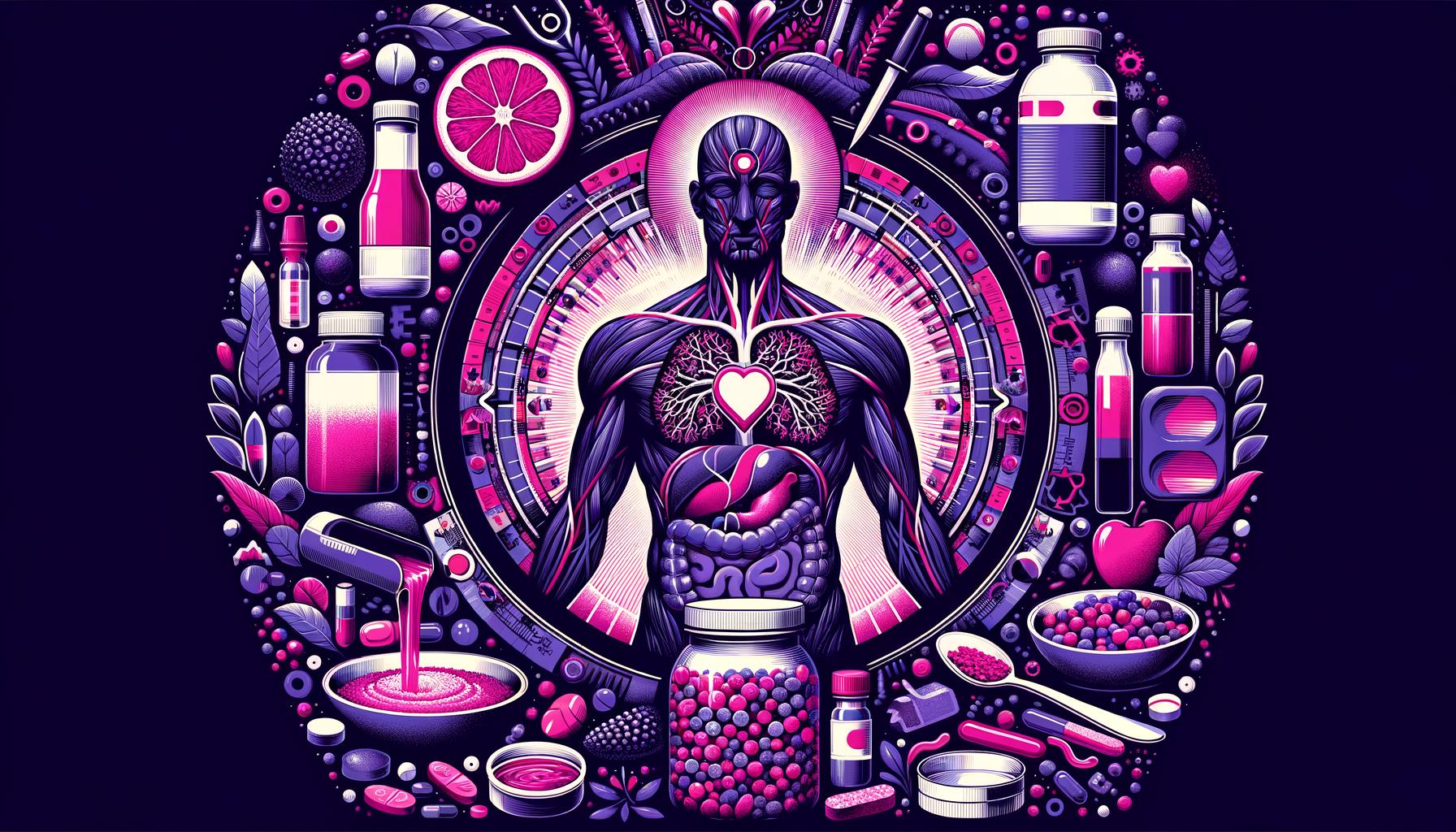· nutrition · 17 min read
The Health Benefits of Dark Chocolate
Delve into the luxurious world of dark chocolate and uncover the vast array of health benefits it offers. From heart health to brain function, discover how this delicious treat can contribute positively to your well-being.

In This Post
The Fact Why Should I Care How To Put In Action Start Tomorrow Guide How does it effect my ability to focus How does it impact my daily life How does it help me make friends How does it help me manage stress How does it effect my mood Summary: Remember Refresher Checklist The Full Research Article CitationsPrint Out The Tomorrow Checklist!
Sign up for our newsletter and receive a copy today, so that, you can start tomorrow! Or the next day, or the day after that. I forget everything and starting things is hard at least for me so these checklists are godsend.
Print Out The Remember Refresher Checklist!
Sign up for our newsletter and download your own copy of the Remember Refresher Checklist, so that, you can easily put it on your fridge and help you stay on target towards your WHY. Every little bit helps.
Introduction
Understanding Dark Chocolate and Its Unique Properties
Dark chocolate, celebrated for its robust flavor and myriad health benefits, stands out in the world of sweets not just for its taste but also for its nutrient-rich profile. Unlike its milk chocolate counterpart, dark chocolate boasts a higher concentration of cocoa solids, which are the source of its health benefits. These include flavonoids and antioxidants, substances known for their ability to combat oxidative stress and inflammation in the body.
What Makes Dark Chocolate Special?
Here’s a quick checklist to understand what differentiates dark chocolate from other types:
- Higher cocoa content for that distinct, rich taste.
- Lower sugar content compared to milk chocolate.
- Packed with flavonoids and antioxidants.
- Less processed, retaining more of the beneficial compounds.
Delving deeper, dark chocolate’s composition directly influences its health perks. For instance, the flavonoids present in cocoa are types of antioxidants that aid in protecting our cells against damage from free radicals. Such properties not only contribute to the chocolate’s bitter taste but also its capacity to boost heart health, lower blood pressure, and even improve brain function.
Why 70% Cocoa is the Magic Number
When it comes to dark chocolate, not all bars are created equal. The key to unlocking the health benefits of dark chocolate lies in the percentage of cocoa it contains. The magic number here is 70% cocoa content or higher. This benchmark ensures that you’re getting a significant amount of cocoa solids ‚Äî and thus flavonoids and antioxidants ‚Äî in each bite, making it a nutrient-rich treat.
The Importance of Cocoa Percentage:
- Higher cocoa content = more health benefits.
- 70% cocoa or more decreases the relative sugar content, making it a better choice for maintaining a healthy lifestyle.
- The bitter taste of high cocoa content chocolate is a sign of its rich flavonoid profile.
In essence, choosing dark chocolate with a cocoa content of 70% or more guarantees that you’re indulging in a treat that not only satisfies your taste buds but also contributes positively to your health. Whether it’s supporting cardiovascular health or providing a brain boost, the right dark chocolate can be a delicious part of a balanced diet.
Nutritional Profile of Dark Chocolate
Dark chocolate isn’t just a treat to satisfy your sweet tooth; it’s packed with beneficial nutrients that contribute to its status as a proponent of good health. When opting for dark chocolate with a high cocoa content, particularly those varieties that are 70% cocoa or more, you unlock a treasure trove of vitamins, minerals, and antioxidants. Let’s delve into the details.
Key Nutrients in Dark Chocolate
Dark chocolate, especially that which boasts a 70% cocoa content or higher, is a nutrient-rich treat. It’s loaded with:
- Iron, crucial for transporting oxygen throughout the body
- Magnesium, involved in over 300 biochemical reactions in the body, including muscle and nerve function, blood glucose control, and blood pressure regulation
- Copper and manganese, both essential for healthy bones and immune function
- Zinc, important for immunity, DNA synthesis, and cellular metabolism
- A modest amount of soluble fiber, contributing to digestive health
Even though dark chocolate is nutrient-dense, it is also calorie-rich and contains sugar and fat, so moderation is key. Aim for a small portion, such as an ounce a few times a week, to glean the benefits without overindulging.
The Power of Flavonoids: Antioxidants in Dark Chocolate
The heart and brain health benefits of dark chocolate largely stem from its impressive array of antioxidants, specifically flavonoids. Flavonoids are naturally occurring compounds found in plants that have been shown to have numerous health benefits. In dark chocolate, these compounds:
- Contribute to the reduction of blood pressure by improving nitric oxide levels in the blood, which helps to relax and dilate blood vessels.
- Enhance brain function by boosting blood flow to the brain, which can improve cognitive function and even possibly reduce the risk of neurodegenerative diseases.
- Support heart health by improving blood flow in the arteries and contributing to lower risk of heart disease.
A simple checklist for choosing a nutrient-rich, flavonoid-packed dark chocolate includes:
- Opting for at least 70% cocoa content, as higher percentages typically contain more flavonoids.
- Checking the ingredients list for minimal added sugars and fats, which can negate the health benefits.
- Ensuring the chocolate is dark, not milk or white, as these contain little to no beneficial flavonoids.
By focusing on the cocoa percentage and being mindful of the nutritional content, you can enjoy dark chocolate as part of a balanced diet while capitalizing on its health benefits. Whether you’re looking to support brain health, heart health, or just seeking a nutrient-rich treat, dark chocolate offers a delicious solution. Remember, though, moderation is pivotal to maximizing the health benefits without overindulging in this decadent treat.
Health Benefits Detailing
Lowering Blood Pressure: How Dark Chocolate Works
Dark chocolate, particularly the variants high in cocoa content, has been linked to lower blood pressure levels. This benefit is primarily due to the presence of flavonoids, plant-based compounds found abundantly in cocoa. These flavonoids stimulate the production of nitric oxide in the body. Nitric oxide sends signals to the blood vessels to relax, which in turn reduces resistance to blood flow and hence lowers blood pressure. For individuals with slightly elevated numbers or those looking to maintain a healthy blood pressure range, incorporating dark chocolate into their diet could be a sweet, beneficial strategy.
Boosting Brain and Heart Health Through Improved Blood Flow
The benefits of dark chocolate extend beyond just lowering blood pressure. Enhanced blood flow, courtesy of flavonoids’ ability to relax blood vessels, also impacts brain and heart health positively. Improved circulation means more oxygen and nutrients are delivered to these critical organs, aiding in their function and resilience against diseases. Regular consumption of dark chocolate with a high cocoa percentage can help in maintaining cognitive functions, reducing the risk of stroke, and ensuring a healthy heart. It‚Äôs like hitting two birds with one stone ‚Äì a delicious treat that cares for your brain and heart alike.
Fighting Cell Damage: The Role of Antioxidants in Dark Chocolate
Another significant health benefit of dark chocolate is related to its antioxidant properties. The body constantly battles against free radicals - unstable molecules that can cause oxidative stress and cellular damage, leading to aging and various diseases. Antioxidants in dark chocolate, such as flavonoids and polyphenols, combat these free radicals, providing a protective shield to our cells. By incorporating antioxidant-rich dark chocolate into the diet, we can fend off the adverse effects of oxidative stress and maintain younger, healthier cells.
- Include dark chocolate with high antioxidant content in your diet
- Aim for varieties with high levels of flavonoids and polyphenols
- Consume in moderation to harness the benefits without the added sugar risks
The Impact of Cocoa Percentage on Health Benefits
The health benefits associated with dark chocolate are significantly influenced by its cocoa content. The magic number often cited is 70% cocoa or higher. At this percentage, dark chocolate strikes a perfect balance between being palatably enjoyable and healthily beneficial. The higher the cocoa percentage, the higher the concentrations of flavonoids, antioxidants, and other beneficial compounds. However, it’s also important to consider personal preference and tolerability, as higher cocoa content translates to a more bitter taste. Finding your sweet spot in terms of cocoa percentage is key to enjoying the health benefits without compromising on taste.
By understanding the intricate relationship between cocoa percentage and health benefits, consumers can make informed decisions about their chocolate consumption, ensuring they derive maximum health benefits while indulging in this decadent treat.
Choosing the Right Dark Chocolate
When it comes to reaping the health benefits of dark chocolate, not all bars are created equal. Understanding what to look for on labels and knowing the significance of cocoa content can help you choose the healthiest dark chocolate bars. Equally important is knowing how much to consume to enjoy its benefits without overindulgence.
Deciphering Labels: What to Look for in Dark Chocolate
When picking a dark chocolate bar, reading the label is crucial. First, seek out the cocoa content. High-quality dark chocolate should contain a cocoa percentage of 70% or higher, indicating more flavonoids and less sugar. Next, check the ingredients list for the presence of cocoa solids and minimal additives. Opt for options with fewer ingredients—cocoa mass, cocoa butter, and a little sugar are sufficient. Avoid products with trans fats, high fructose corn syrup, artificial flavorings, and excessive sugar content.
- Cocoa content of 70% or higher
- Minimal ingredients
- No trans fats or high fructose corn syrup
- Limited sugar content
The Importance of Cocoa Content: Why 70% Matters
Cocoa content plays a pivotal role in determining the health benefits of dark chocolate. Bars with a cocoa percentage of 70% or higher are richer in flavonoids, the antioxidants responsible for many of dark chocolate’s health benefits, including lowering blood pressure and boosting heart and brain health. These bars have less room for sugar and unhealthy fats, making them a nutrient-rich treat compared to their lower cocoa counterparts.
High cocoa content signifies a higher concentration of antioxidants, flavonoids, and other minerals that contribute to cardiovascular health, brain health, and protection against cell damage. Emphasizing the cocoa percentage is not just about taste or bitterness‚Äîit’s about ensuring you’re getting a healthful product.
Moderation is Key: Recommended Daily Intake of Dark Chocolate
While dark chocolate is a healthier choice compared to milk chocolate or sugary snacks, moderation is essential. The recommended daily intake of dark chocolate is about one to two ounces (30-60 grams). This amount allows you to enjoy the health benefits without consuming too many calories or too much sugar.
Consuming dark chocolate in moderation ensures that you can incorporate this treat into a balanced diet without adverse effects. Remember, dark chocolate is calorie-dense, and excessive consumption can lead to weight gain and other health issues. Enjoy dark chocolate as part of a healthy lifestyle, alongside a balanced diet and regular physical activity.
In summary, choosing the right dark chocolate involves scrutinizing labels for high cocoa content and minimal additives, understanding why higher cocoa percentages matter for health, and enjoying dark chocolate in moderation to reap its benefits without overindulgence. By following these guidelines, you can indulge in this bitter chocolate benefit responsibly and healthfully.
FAQs
In our quest to delve deeper into the understanding of dark chocolate and its myriad health benefits, we encounter some frequently asked questions (FAQs). From its impact on heart health to immediate effects post-consumption, let’s explore these queries to enhance our knowledge.
Can Any Type of Dark Chocolate Improve Heart Health?
When it comes to enhancing heart health, not all dark chocolates are created equal. The key factor here is the cocoa content. Chocolate with a higher percentage of cocoa, ideally 70% or more, is rich in flavonoids and antioxidants. These compounds are pivotal in boosting heart health by improving blood flow and reducing inflammation.
- ‚úÖ Look for dark chocolate with at least 70% cocoa for heart health benefits.
- ‚ùå Milk chocolate or those with lower cocoa content offer significantly fewer benefits.
How Does Dark Chocolate Affect Brain Function?
Dark chocolate‚Äôs positive effects on brain function are fascinating. The flavonoids enhance brain health by increasing blood flow to the brain, which can lead to improvements in cognitive functions, memory, and mood. Moreover, dark chocolate stimulates the production of endorphins, the body’s natural “feel-good” chemicals, which can enhance mood and counteract stress.
- üîç Daily moderate intake can help reap these brain health benefits without overindulgence.
What Are the Immediate Effects of Consuming Dark Chocolate?
The immediate effects of consuming dark chocolate can vary from person to person. Generally, due to its caffeine content, dark chocolate can provide a mild energy boost and improve focus. Its flavonoids can also promote a sense of wellbeing through the release of endorphins. Additionally, dark chocolate can satisfy cravings without the guilt, thanks to its nutritional benefits.
However, overconsumption should be avoided to prevent potential negative effects such as:
- Nausea
- Increased heart rate
- Headaches
In conclusion, the key to enjoying the health benefits of dark chocolate lies in choosing the right kind (high in cocoa content and low in sugar) and consuming it in moderation. Always check the labels for cocoa content and be mindful of the portion sizes to fully enjoy the health benefits dark chocolate has to offer for both brain health and heart health.
Misconceptions about Dark Chocolate
When it comes to indulging in dark chocolate, there’s a blend of truth and fiction that swirls around its health effects. Understanding what dark chocolate can and can’t do is crucial in appreciating its benefits without falling for the common myths that often cloud its real potential.
Debunking Myths: What Dark Chocolate Can and Can’t Do
Over the years, dark chocolate has been celebrated for its numerous health benefits, from enhancing heart health to improving brain function. However, amidst these accolades, several myths have also taken root, leading to misconceptions about what dark chocolate can genuinely offer. Let’s debunk some of these myths:
Myth 1: “All Dark Chocolate is Created Equal”
Not all bars of dark chocolate hold the same nutritional value or health benefits. The key factor here is the cocoa content; ideally, look for dark chocolate with at least 70% cocoa. Higher cocoa content means more flavonoids, which are responsible for many of the health benefits associated with dark chocolate.
Myth 2: “More is Better”
While dark chocolate is nutrient-rich, moderation is key. Consuming too much can lead to excessive intake of calories and sugars, undermining its health benefits. The recommended daily intake should not exceed a small square, roughly 1 ounce (28 grams), to reap its benefits without overindulgence.
Myth 3: “Dark Chocolate is a Heart Disease Cure”
While flavonoids in dark chocolate have been linked to heart health by boosting circulation and lowering blood pressure, it’s not a cure. Dark chocolate should complement a balanced diet and healthy lifestyle, not replace medical treatments or healthy habits.
Myth 4: “The Bitterness Indicates Healthiness”
While it’s true that bitter chocolate typically contains more cocoa solids, the bitterness level isn’t a direct indicator of the chocolate’s health benefits. The key is to check the cocoa content and sugar content on the chocolate labels to ensure you’re making a healthy choice.
Myth 5: “Dark Chocolate is High in Caffeine”
Dark chocolate does contain some caffeine, but it’s relatively low compared to a cup of coffee. A 1-ounce piece of dark chocolate contains roughly 12 mg of caffeine, while an 8-ounce cup of coffee has approximately 95 mg.
Checklist for Recognizing the Healthiest Dark Chocolate Bars:
- Check the Cocoa Content: Aim for 70% or higher.
- Sugar Content: Lower sugar content is preferable.
- Minimal Ingredients: Look for bars with few additives.
- Organic Labels: Organic dark chocolate might have fewer pesticides.
- Flavonoid Content: Though not always listed, higher cocoa content usually means more flavonoids.
In summary, while dark chocolate is a delicious and nutrient-rich treat that can offer health benefits, particularly related to heart and brain health, it’s essential to consume it thoughtfully. Debunking the common myths surrounding dark chocolate can help you make informed decisions about including it in your diet and enjoying it as part of a healthy lifestyle.
Conclusion
As we wrap up our exploration into the rich world of dark chocolate, it’s clear that this beloved treat goes far beyond just satisfying our sweet tooth. With a focus on chocolate that boasts a high cocoa content, particularly those varieties with 70% cocoa or more, we unlock a world of health benefits that have the potential to positively impact our lives in numerous ways.
Summary of the Benefits of Dark Chocolate With High Cocoa Content
- Nutrient-Rich Treat: High cocoa dark chocolate is loaded with vital nutrients such as iron, magnesium, copper, manganese, and a few others that are essential for our health.
- Heart Health: The flavonoids and antioxidants found in dark chocolate aid in improving heart health by boosting circulation, reducing the risk of cell damage, and lowering blood pressure.
- Brain Health: These same compounds also contribute to better brain function, aiding in everything from improving cognitive function to reducing the risk of neurodegenerative diseases.
- Antioxidant Powerhouse: Dark chocolate is a significant source of antioxidants, ranking even higher than superfruits like blueberries and acai berries in antioxidant capacity.
To benefit from these nutritional and health advantages, consider the following checklist when incorporating dark chocolate into your diet:
- Opt for dark chocolate with 70% cocoa or higher for maximum health benefits.
- Limit your intake to moderate quantities to avoid consuming excessive calories and sugar.
- Look for chocolate labels that indicate high cocoa content and low sugar levels.
- Whenever possible, choose organic dark chocolate to ensure you’re consuming the healthiest dark chocolate bars available.
- Enjoy dark chocolate as part of a balanced diet to enhance its health benefits without overindulgence.
In debunking the myths and focusing on the facts, it’s clear that, when chosen carefully and consumed in moderation, dark chocolate is not just a treat but a nutrient-rich addition to our diets that offers numerous health benefits. Whether it’s for boosting heart and brain health, getting a dose of antioxidants, or simply enjoying a guilt-free snack, dark chocolate with high cocoa content stands out as a valuable component of a healthy lifestyle.
Remember, while dark chocolate is indeed healthful, it should complement a balanced diet full of various nutrients and foods. So, go ahead, indulge in that square of bitter chocolate, and relish in the knowledge that it’s not just pleasurable but also beneficial for your health.
Relevant External Links for Further Exploration
In our journey to understand the health benefits of dark chocolate, the significance of cocoa content, and how to integrate this nutrient-rich treat into our diet responsibly, we’ve uncovered a wealth of knowledge about flavonoids, antioxidants, and the role chocolate plays in boosting circulation and cardiovascular health. To further expand your understanding and help you make informed choices about consuming dark chocolate for health, here are three essential resources that provide deep insights into the topics we’ve discussed:
Understanding Flavonoids in Chocolate
This article dives into the science behind flavonoids found in cocoa and their numerous health benefits, including improving heart health and providing antioxidant properties that help in fighting cell damage. It’s a must-read for anyone interested in the detailed nutritional benefits of dark chocolate and why these compounds are pivotal in making dark chocolate a beneficial part of your diet.
Selecting the Healthiest Dark Chocolate
Deciphering chocolate labels and understanding what truly constitutes healthy dark chocolate can be challenging. This comprehensive guide breaks down what you should look for when selecting dark chocolate, emphasizing the importance of high cocoa content and low sugar levels to maximize health benefits while indulging in this delicious treat.
Dark Chocolate and Heart Health
The American Heart Association provides insights into how dark chocolate, when consumed in moderation, can play a role in maintaining cardiovascular health. This article discusses the research surrounding dark chocolate and its potential to lower blood pressure, improve blood flow to the brain and heart, and other aspects of cardiovascular wellness.
Final Thoughts: Embarking on a Journey Toward Healthier Choices
As you explore these resources and incorporate dark chocolate into your lifestyle, remember the golden rule of moderation. Enjoying dark chocolate as a part of a balanced diet can offer notable health benefits, especially when you’re mindful of the cocoa content and overall nutritional profile of the chocolate you’re consuming.
To make your journey easier, here’s a quick checklist for incorporating dark chocolate into your diet responsibly:
- Choose dark chocolate bars with at least 70% cocoa content for maximum health benefits.
- Limit your intake to a few squares per day to avoid excessive calorie consumption.
- Look for labels indicating low sugar content and minimal processing.
- Consider organic dark chocolate options to reduce exposure to unwanted chemicals.
- Balance your diet with other nutrient-rich foods to ensure overall wellness.
By following these guidelines and exploring the provided resources, you’re well on your way to enjoying dark chocolate not only as a delicious treat but also as a beneficial component of your health-focused lifestyle. Happy indulging!





